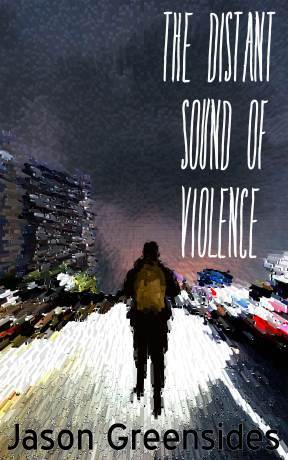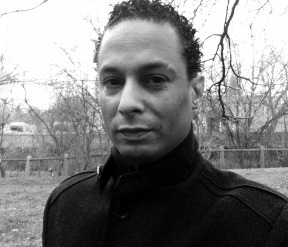A Guest Post by Author Jason Greensides
Mysterious Characters and Unforgivable Acts of Violence
by Jason Greensides
One piece of writing advice that never set well with me – however useful it is at a practical level – is to know your characters: that you should be able to understand every little aspect of your character if you ever want them to be believable, sympathetic, and to leap off the page. Of course, in general this is useful advice, however, not only has this the potential to make writing less fun (one of the reasons I write is to discover something I didn’t know), but seems a fundamental flaw in how we should perceive other people in everyday life, particularly the violent and anti-social ones. It presupposes that characters and real people can be fully understood (and therefore judged), which I believe to be not only impossible, but ethically wrong.
The Baltimore Riots and other events of social upheaval always produce the same reaction in me. Not: How could those people act that like that? But: How could those reporting on events (which, because of ‘likes’, shares and unseen algorithms, is actually you and I), cast absolutist judgement upon people whose circumstances we can’t fully comprehend, as they themselves can’t. This too is another reason why I hate that writing mantra Know your characters: How can I truly know my characters when I don’t understand all the things that make me me?
Not only do the episodes of one’s own life seen through the lens of chance obfuscate analysis of what motivates us – our childhood, our parent’s lives, our grandparent’s lives, and back through human history – but at a genetic level, when you analyse how genes move from generation to generation through natural selection. It is the interplay between their outward characteristics and the environment in which they find themselves, not foresight or inherent strength, that ensures their survival through time. Once you know this, you can’t help but come to the conclusion that really genes just make this shit up as they go along.
Then there are random geological and cosmic events that shape the course of the planet and life as a whole – an endless swirling and shifting series of events with (possibly) no primary cause, adding yet more uncertainly about what made us who we are.
And at the atomic level, Heisenberg stated that you can’t know the position and momentum of a particle to 100% accuracy. So if you can’t know that then how can you know everything about someone’s deeper motivations, which in turn are obscured by their own life’s events, and in turn their understanding of those same events.
Life is brimming with chance and the ever unknowable – it’s everything but perfect and absolute – and this is what we (as artists, as writers) must embrace if our work, however down-to-Earth, is to reflect the great mystery of existence.
The hard thing about this is, of course, when writing so called ‘evil’ characters (and if you’re still with me you’ll agree this is a useless term), or seeing ‘evil’ acts play out in society, trying to suspend judgement upon them is one of the hardest things we can do. If a group of guys broke into my house, for example, and assaulted me and my wife, I too would call them evil, would want absolute judgement to squeeze the breath from their throats. I too would not be able to forgive.
But we must try, because ultimately, however you think about it, there had to have been at least one Nazi who, while placing the cold barrel of his Luger to the back of the head of a Polish Jew, thought, ‘Seriously, what the hell am I doing?; there must have been one Cheka officer who, while denying a Kulak his daily allowance of bread, thought, ‘My wife is really not going to like this’; there must have been one RPKAD commando in Indonesia who, before raping the fifteen-year-old daughter of a suspected Communist, thought, ‘What if my own daughter found out?’ Then moral complexity is further muddled when we do not consider pilots of Allied forces carrying out the bombing of Dresden as monsters, do not view leaders of the Western world as having committed an atrocity when imposing economic sanctions on Iraq.
So, suspend your judgement in everyday life, if you can (and I, for my part, will try to suspend my judgement upon those who deal with sweeping, all-inclusive statements of evil), and maybe, just maybe, the characters you create may have a little mystery, may have a little of the unknown, may be dynamic enough to hold our attention until the last page.
Jason Greensides

A contemporary novel by Jason Greensides
WEBSITE: JasonGreensides.com
TWITTER: @jasongreensides
FACEBOOK: facebook.com/jasongreensidesauthor
GOODREADS: goodreads.com/Jason_greensides
Filed under: Writing Tagged: authors, Baltimore Riots, fiction, Guest Authors, Indie Authors, Jason Greensides, literary fiction, literature, novels, publishing, writers, writing, writing advice












